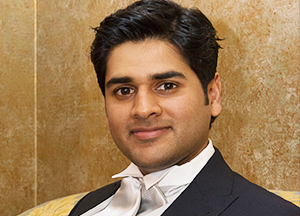Congratulations to Priyank Kumar at the School of Chemical Engineering, UNSW Sydney, who becomes a new Chief Investigator within FLEET.
“I look forward to contributing to the objectives of FLEET through both fundamental and translational research,” said Priyank. “I would like to thank Michael Fuhrer, Kourosh Kalantar-zadeh and the FLEET team for providing me this opportunity.”
Priyank has been an Associate Investigator in FLEET since 2019, and has been intimately involved in achieving FLEET milestones at UNSW, collaborating closely with CI Kalantar-zadeh.
Discovery and accurate characterization of new excitonic and topological dissipationless systems are two key research themes in FLEET.
Priyank has been using advanced quantum-mechanical computational methods such as beyond-DFT or many-body methods to discover new systems based on atomically-thin materials, and explore system engineering via external stimuli such as strain and dopants.
Additionally, these methods will also be used to accurately characterize the excitonic and topological systems currently being developed in FLEET, aiding experimental work.
“FLEET’s leadership team and myself enthusiastically support Priyank’s elevation to Chief Investigator within the Centre,” says FLEET Director Prof Michael Fuhrer.
“The appointment of Dr Kumar as a Chief Investigator recognizes his exceptional achievements as a young investigator and will allow him to step up to a greater leadership role with FLEET which will further advance Dr Kumar’s career and build his capacity for scientific leadership in Australia.”
Priyank is highly qualified to be a Centre of Excellence Chief Investigator. He is an ARC DECRA Fellow and a Scientia Fellow at UNSW with a very impressive research record.
He has published 64 publications in his career with 2,247 citations and an h-index of 25 (Google Scholar). His rate of scientific outputs is on a steep upward trajectory, with 23 papers in 2020-21.
His research has been focused on designing atomically-thin materials and plasmonic nanostructures for applications in electronics, optoelectronics and photo(electro) catalysis using ab initio computational methods such as density functional theory (DFT) and time-dependent DFT (TDDFT).
Priyank and his supervised students’ high-quality publications have included engineering electron transport at liquid-metal/semiconductor interfaces for various applications and using liquid metals to grow 2D and other useful nanostructures utilizing the unique properties of liquid gallium (under review at ACS Appl. Mater. Interfaces).
He is currently engaging with the FLEET’s Translation Program (FTP) to commercialize a lab-scale zinc-ion battery technology.

